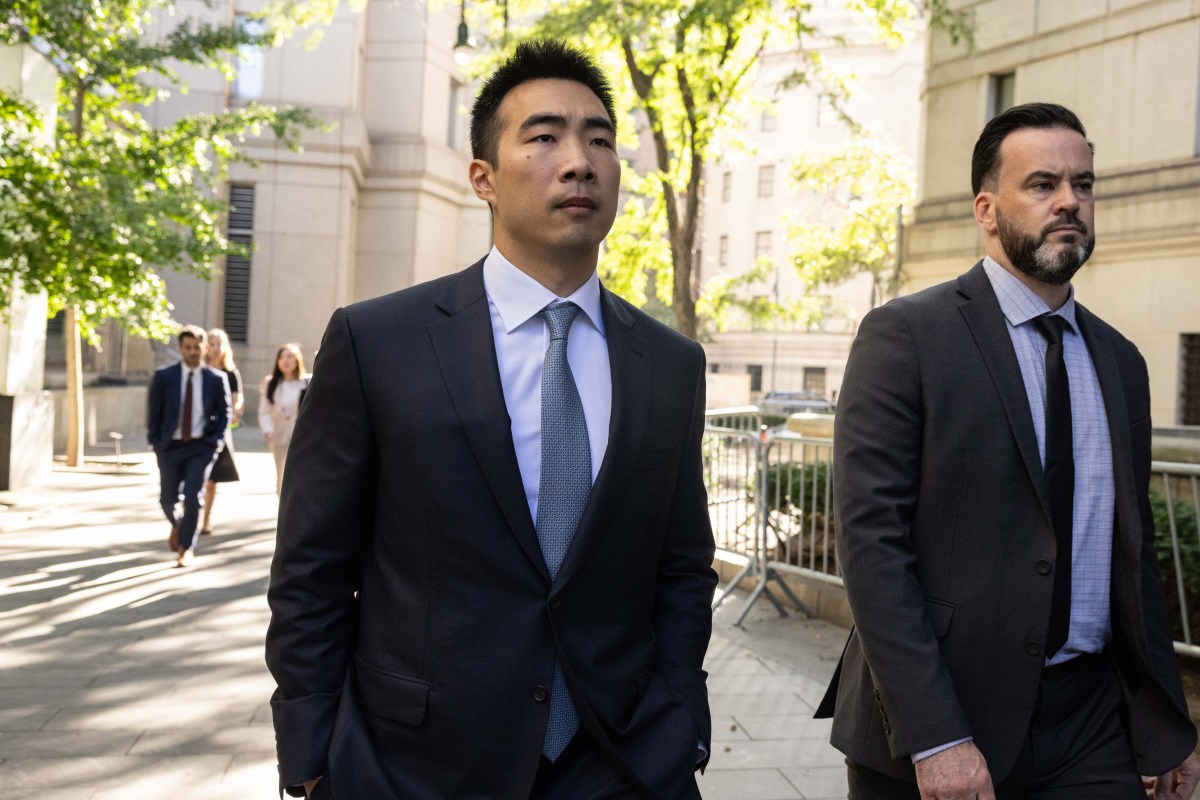The testament of Matt Huang, founder and also handling companion of crypto investment company Ideal, at Sam Bankman-Fried’s test might aid the prosecutor encourage jurors that the previous crypto magnate ripped off financiers.
Huang demonstrated Thursday that he and also his company resided in the sulky regarding a variety of organization methods at FTX, warnings that would certainly possess influenced his selection to acquire the firm. Particularly, FTX’s use client funds to reinforce Bankman-Fried‘s mutual fund Alameda Study.
Government participation apart, Huang likely possesses his very own objectives for affirming versus Bankman-Fried and also outdoing his company coming from FTX. Ideal becomes part of a class-action suit (which was actually briefly kept in June) that charges it, together with Sequoia Financing and also Thoma Bravo, of marketing FTX to the hinderance of its own customers.
According to Huang’s testament, Ideal was actually deceived, also.
Over pair of financing spheres in between 2021 and also 2022, Ideal spent $278 thousand in to FTX. When district attorney Thane Rehn inquired what Ideal predicts the present market value of that financial investment to become, Huang responded, “Our experts have actually denoted it to absolutely no.”
That creates harm has actually been actually performed in the type of economic reductions, some of the important things the prosecutor will certainly must develop if you want to show fraudulence.
The federal government will certainly additionally must develop misstatement, revealing that the accused brought in misleading claims or even hidden product info if you want to encourage financiers to hand over funds. District attorneys additionally need to have to show that the financiers depend on Bankman-Fried’s misstatements. Ultimately, they’ll need to have to show that Bankman-Fried aimed to rip off financiers, which may be harder.
Huang’s testament Thursday a minimum of assists bureaucracy of 3 away from 4 of those aspects.
Paradigm began considering investment into FTX in 2019, according to Huang. During that time, Huang testified that he was told FTX exchange wallets served as a custodian for customer deposits and would always be available if customers wished to withdraw. He wasn’t told that FTX could take those deposits out and use them for their own business purposes.
When asked if he would have still invested in FTX knowing that, Huang responded, “likely not.”
“If it became known that they were doing that, I think the exchange would lose credibility in the brand and people wouldn’t want to use it, so it would be existential to the business,” said Huang.
Not only was Huang uninformed about FTX’s habit of using customer deposits for its own purposes, but he also testified that he didn’t know Alameda was able to access those deposits, and wouldn’t have invested in FTX if he had.
“Customer deposits are sort of sacred,” he said.
As Ideal was looking at financial investment in to FTX, Huang said he raised concerns about the link between Alameda and FTX. Mainly, he was worried that Alameda — one of the largest traders on the platform — would get preferential treatment, which would also be damaging to FTX’s reputation.
Bankman-Fried told Huang Alameda didn’t have preferential treatment on the platform. But the prosecution pointed out that Alameda was exempt from FTX’s liquidation engine, a risk management strategy that’s designed to automatically trigger the sale of assets if certain risk parameters are exceeded.
Huang said FTX’s liquidation engine was a big part of why Paradigm was attracted to the company. He also agreed that Alameda’s exemption is inconsistent with Bankman-Fried’s statement that it didn’t get preferential treatment.
“It would have meant that Alameda could trade with leverage on the platform and, if those trades didn’t work out, could ultimately incur a negative balance that would have to be paid for somehow,” said Huang. “In a typical case, that might come from the money we were investing into the company that would go to fund operations. But in any case, it would leave the business at risk of becoming insolvent.”
Rehn also sought to establish that Bankman-Fried made false statements to lull Paradigm into investing. He pulled up an excel spreadsheet that had been attached to an email Bankman-Fried sent to Huang showing FTX’s financial stats as of April 2021. The balance sheet showed FTX’s annualized approximate revenue, estimating a net profit for Q1 2021 of $85 million. Rehn asserted that FTX had moved certain expenses off those financial statements in order to artificially inflate the reported net profits.
Throughout his testimony, Huang repeated that he had also expressed concerns with Bankman-Fried over FTX’s lack of a board and lack of governance, which he said could lead to unintended value leakage. While this did not ultimately stop Paradigm from investing in FTX, Huang demonstrated that “SBF was actually really insusceptible to possessing financiers on the panel.”




